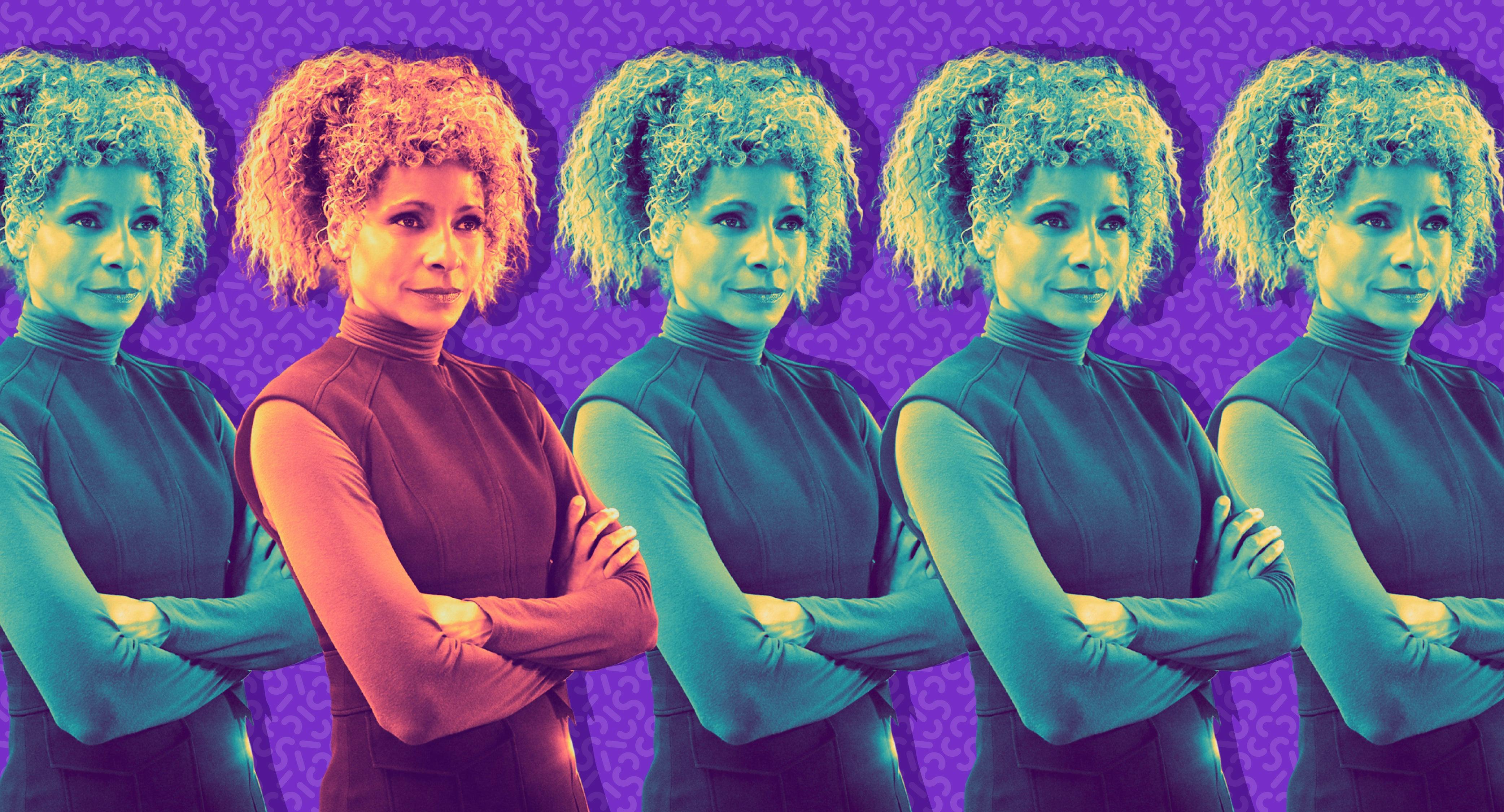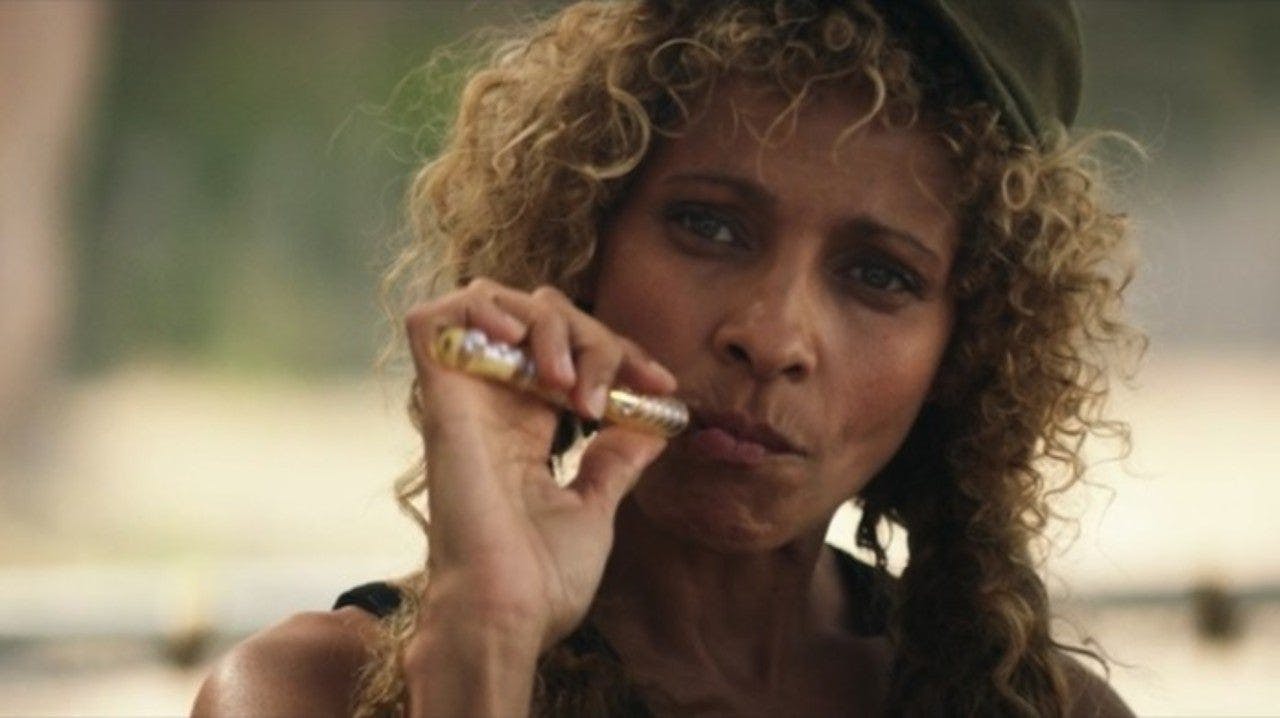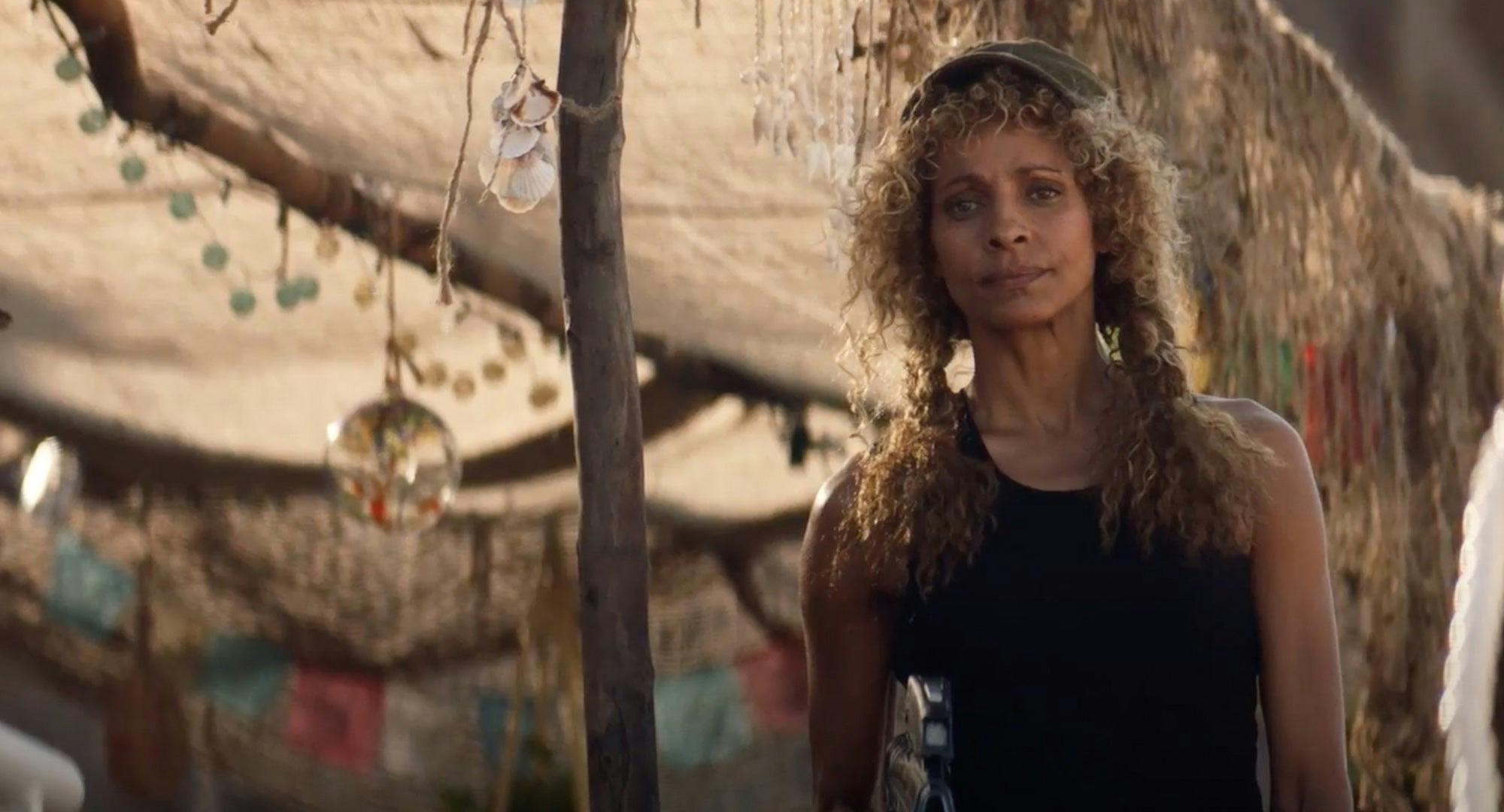Published Dec 21, 2022
For Some Viewers, Raffi Musiker's Story is All Too Familiar
How the writers on Star Trek: Picard managed to shine a light on something many Black women have gone through themselves.

StarTrek.com
Throughout 2020, we witnessed continuous protests, in America and around the world, over the treatment and disenfranchisement of Black people, ignited by the death of George Floyd at the hands of police officers in Minneapolis along with other tragic incidents. A large amount of the protesting we’ve seen has ties to those at the forefront of organizing, protesting and advocating for societal change — Black women.
Black women are also heavily engaged in fighting another battle, that of being disrespected and disenfranchised on all fronts, even by those who they rely on for support. From rapper Megan Thee Stallion breaking down while recounting how she was shot by someone she trusted and seeing the jokes at her expense, to numerous Black women detailing the unfair ways they’ve been treated in the workplace and the many microaggressions (to outright racism) they’ve had to deal with, it dawned on me that this story is not absent from the Star Trek universe. The story of Rafaella “Raffi” Musiker (portrayed by Michelle Hurd) in Star Trek: Picard is the prime example of this.

StarTrek.com
We first meet Raffi in the second episode of the series, “Maps and Legends.” Admiral Jean-Luc Picard arrives at Raffi’s trailer out in the desert. After his request for a ship is spurned by Starfleet, he seeks her help to obtain a ship and pilot. Raffi greets him with disdain, and in their exchange, illustrates how her life was turned upside down after Jean-Luc’s resignation from Starfleet. As she puts it, “my whole life for the last 14 years has been one long slide into humiliation and rage.” That action led to Raffi being fired from Starfleet as a punitive measure for her loyalty to Picard, who she calls “J.L.” She refuses to go with Picard on his mission to find out about Dahj’s sister and the other synthetics at first, but does confirm that she has engaged Cristóbal Rios and the La Sirena for him. She finally relents after doing some further research and joins his crew that “has nothing to lose.”
As neat as that may be, Raffi’s struggles do share similarities to what Black women endure in their daily lives and in the workplace. On the surface, Raffi seems like an erratic and embittered drunk who clings to the addictive snakeleaf. The substance abuse is a bandage against all her wounds, which include those formed when Jean-Luc’s own personal demons blinded him to what Raffi was dealing with and, eventually, lost contact with her for 14 years.

StarTrek.com
The visual contrast of the rift in their relationship is clear when you compare Chateau Picard’s lush landscape and tranquil abode to Raffi’s isolated trailer amid the desert environment of the Vasquez Rocks. Another sharp contrast lies in the warm and familial relationship Jean-Luc has with a previous “Number One,” William Riker, who is now a family man married to Commander Deanna Troi.
Black women may be able to relate to the opposite circumstances Raffi finds herself in. Often seen as and praised for being “strong” and “resilient,” there’s an unfortunate expectation that Black women will simply persevere through adverse situations, without thought of the risks to her mental and physical well-being. This is emphasized on Picard when Jean-Luc tells Raffi about the Tal Shiar’s involvement, finally confirming what the younger woman had been theorizing, but was pilloried and called paranoid for. Raffi’s anger comes from the lack of mentoring and the loss of contact between her and Jean-Luc, which is a key stressor for Black women and a microaggression even in the 24th Century. In this regard, Picard took Raffi for granted and his absence created that void leading to her emotional spiral.

StarTrek.com
Raffi’s journey is not unlike what many Black women experience when trying to advance within their fields, and in that, the writers of Star Trek: Picard have tapped into and deftly told the story of the very unique brand of stress Black women have to deal with in the workplace. Throughout the rest of the series, Raffi taps back into what has made her the highly adept former lieutenant commander she was. On her journey through Season 1, she summons the strength to forgive herself and find a way forward, and even reconciles with Picard as he shows vulnerability and truly apologizes for how he hurt her. One can’t help but applaud Michelle Hurd, a veteran actress, for nailing every emotional note that Raffi feels from her brusqueness, to her being at the point of anguish. It is in Raffi’s story that we learn that we still need to not only listen to how Black women suffer harm and neglect in this way, but also focus on creating safe spaces for their healing and a brighter future for their life going forward.
Inside the Studio with Michelle Hurd
This article was originally published on January 13, 2022.
Christopher A. Smith (he/him)hails from New York City, having worked in television and film post-production before turning to his first love of writing. He’s an avid movie watcher who enjoys a lot of reading and walking in his spare time, and has always wanted to try Saurian brandy. Find him on Twitter @infinitewords14
Star Trek: Picard streams exclusively on Paramount+ in the U.S. and is distributed concurrently by Paramount Global Content Distribution on Amazon Prime Video in more than 200 countries and territories, and in Canada it airs on Bell Media’s CTV Sci-Fi Channel and streams on Crave.
Stay tuned to StarTrek.com for more details! And be sure to follow @StarTrek on Facebook, Twitter, and Instagram.

